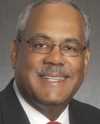VOL. 39 | NO. 38 | Friday, September 18, 2015
Other winners, losers emerge from Nashville mayoral race
With a 55-45 margin, Megan Barry came out a clear winner over David Fox in the Nashville mayoral runoff, marking a historic day for the city.
Campaigning on a platform to carry on two-term Mayor Karl Dean’s vision for economic expansion, Barry picked up 60,519 votes to Fox’s 49,694 on Sept. 10 to become Metro Nashville’s first female mayor.
Though the mayor’s post is a nonpartisan position, this had all the characteristics of a partisan race, with Fox portraying Barry as a far-left liberal. Indeed, she’s made no secret of her support for gay rights since winning an at-large seat on the Metro Council eight years ago.
In a town that votes Democratic, she also had the support of the city’s Democratic state legislators and former Mayor and Gov. Phil Bredesen, a Democrat.
Fox, though he cast himself as a political independent, ran with the backing of charter school supporters, courted the endorsements of conservatives and Williamson County legislators, painting himself into a Republican corner.
His campaign also landed about $1 million in spending from a conservative political action committee funded by his brother, George Fox, a hedge-fund operator with Titan Advisors.
But while Nashville voters made their preference obvious with Barry, a liberal Democrat, there are several other winners and losers as a result of the election.
Loser: Civility
A former reporter who started the Nashville Post, Fox began his run campaigning on the need to spread the city’s investment out of downtown and into infrastructure such as water and sewer lines. His advertisements showed him stuck in traffic, warning against Nashville becoming another Atlanta.

Fox
When it became clear that wasn’t working, Fox went into attack mode. Political ads cast Barry as an atheist opposed to mentioning “under God” in the pledge of allegiance and against prayer before ball games. The attack spread to her husband, Bruce, a Vanderbilt professor and Nashville Scene columnist, who had taken shots at what he termed the “Jesus-Industrial complex” in old blog posts.
The Tennessee Democratic Party, backing Barry, responded with ads stating a vote for Fox would return Nashville schools to 1950s segregation because of a redistricting vote he made while serving as chairman of the Metro School Board.
Both candidates called on each other to repudiate the ads. But neither backed off. Even a New York Times article reported Nashville’s typically mundane campaigning had turned nasty.
Fox’s move to draw first blood ran counter to his “Nashville Way” campaign label, describing the city’s even temperament and ability to stay above the fray.
Apparently, Stampede Consulting, the Austin, Texas-based firm handling Fox’s campaign, didn’t know much about Fox or Nashville and steered him in the wrong direction.
Sometimes, negative campaigning works. In this case, it flopped and left Fox with a black eye, much more so than Barry.
Loser: Tennessean polling
Shortly before the election, The Tennessean came out with a poll calling it a dead heat: Barry ahead of Fox by 46 to 45 percent.
Raleigh, N.C.-based Public Policy Polling may have had success nationally in predicting outcomes. But it laid an egg with this one.
The polling company surveyed 858 Nashville voters from Aug. 31 to Sept. 1 and had a margin of error of plus or minus 3.4 percentage points.
Oops, missed it by 9 points.
Despite what the polling showed, Barry beat Fox decisively in early voting, 27,901 to 22,369, and on Election Day, 31,915 to 26,605.

Freeman
-- 23Of course, polls are designed to ask people questions. Maybe they caught a bunch of older people sitting at home. But who answers phone calls at home anymore? Who even has a home phone anymore?
But anyone keeping up with the election, even from a distance, could have said this poll was way off. The polling company couldn’t be reached for comment.
Loser: Candidate Bill Freeman
Early in the race, many people were ready to concede the job to Bill Freeman, a wealthy real estate developer who grew up in the Donelson area. After all, he spent roughly $4.5 million, $3.6 million of his own money, to put his name out there. Plus, he had old Nashville backing him.
But he got stuck at 20 percent support citywide and stayed there, finishing behind Barry and Fox in the initial vote. Despite losing amid big spending, Freeman says he feels “great.”
“I’m delighted I invested the time and the energy and the money to run the race,” he says.
The issues Barry and Fox talked about during the runoff – affordable housing and mass transit – were the matters he “championed,” Freeman says, and how the mayor handles them over the next three years will help him decide whether to make another run for the post.
If he sees no progress there, then he’ll likely get in, he says.
That’s probably why he didn’t endorse Barry. If he enters the race for 2019, backing her now could come back to haunt him.
As for his strategy this year, Freeman says he couldn’t think of anything he would’ve done differently. He doesn’t feel like his reputation took a hit either.

Gentry
-- 31“I wish it hadn’t rained. I did all I could do, but it still rained,” he says. “I think Howard (Gentry) being in the race impacted me more than anybody. I’m told by my pollster it cost me 8,000 votes, and obviously 8,000 votes would have been a different race.”
Toss-up: Howard Gentry
Davidson County Criminal Court Clerk Howard Gentry says he didn’t endorse Barry after losing in the initial vote just to come out on the winning side. Yet he and several other black supporters of Barry were on the platform when she accepted victory the night of Sept. 10.
“I lost,” Gentry says, when asked if he thinks he came out a winner. “I ran to become mayor of Nashville, and I believe the person who I felt had the ability to lead Nashville in a way that I would be the most comfortable with has become the mayor of Nashville.”
Gentry declines to say whether Barry or Fox would be better for the city’s black community. “I’m not a fortune teller,” he says, “but I do feel comfortable and confident that Megan will provide what is needed and deserved to the African-American community as she will to the entire community.”
The black community has the same issues as all of Nashville, he notes. It appears, however, that sector of the community isn’t always represented “at the table when decisions are made.” Gentry says he believes Barry will ensure their “voices are heard.”
Gentry says he ran for mayor because he felt it was something he should do, but he says he has “a wonderful job” as Criminal Court clerk and is “dug in.”
As for Freeman’s contention Gentry took 8,000 votes from him, he says wryly, “Well, it looks like he might have taken about 20,000 away from me.”
He will move to the “winner” category if he gains more influence in the Barry administration, though he says he’s comfortable and “dug in” as criminal court clerk.

Ingram
-- 44He already has secured a spot on the transition team, along with fellow former candidate Charles Robert Bone.
Winner: Metro’s LGBT community
In her time on the Metro Council, Barry supported ordinances dealing with non-discrimination for city employees, non-discrimination for contractors and partner benefits, all of which were kind to the lesbian, gay, bisexual and transgender populace.
Barry’s election is “vindication” of her efforts to move the city forward over the last eight years, says Chris Sanders, spokesman for the Tennessee Equality Project, a nonprofit organization advocating for LGBT issues.
“Megan embraced all three of those, and the Family Action Council was putting out a lot of stuff against those kinds of proposals related to the mayor’s race,” Sanders adds. “And to a degree, the Fox campaign raised the focus on those issues as a problem, and voters had a choice and they embraced the last eight years and the potential to move forward, I think.”
Sanders declines to “paint” Fox negatively, saying he doesn’t think Fox is as socially conservative as many of his supporters. In fact, Fox told The Ledger he supports the right to gay marriage but didn’t make it a focal point of his campaign.
Barry, on the other hand, performed the first gay marriage in Nashville after the Supreme Court’s decision overturning Tennessee law.
“With Megan, it is part of the overall way to advance the city. It’s not the only way, but it’s a piece of it,” Sanders says.
Loser: Consultant Tom Ingram
Dubbed by some as The Kingmaker because of his success in political campaigns, Tom Ingram of The Ingram Group chose to consult for Nashville attorney Charles Robert Bone, who finished way down the line in the first vote.

Kane
-- 51Ingram isn’t accustomed to being out of first, having worked for U.S. Sens. Lamar Alexander and Bob Corker and Gov. Bill Haslam.
He won’t concede his reputation lost any luster in this outing, but he does admit the field of seven qualified candidates and the level of spending were more than the Bone campaign expected.
“Both of those factors, I think, contributed to our inability to introduce a new candidate sufficiently enough and uniquely enough to break through a crowded field like that,” he says.
Ingram says he’s been lucky to win more than he’s lost, and even though he’s had success with Republicans, he has worked for Democrats as well, such as former state Sen. Matt Kisber.
Bone, a Democrat who endorsed Barry in the run-off, still holds the potential to be a good elected official, Ingram says.
“He’s young, he’s new. It was a good test, and I think he learned a lot from it.”
Loser: Candidate Jeremy Kane
The founder of LEAD Institute, a charter school in Nashville, Jeremy Kane made his first venture into Nashville politics and was one of only two candidates to receive Super PAC funding.
“I definitely met a lot of new people and got out there in a new way and hopefully showed people the way I think, some new ideas and how I approach solving problems,” he says. “I loved every minute of it and thought it was a great experience and would do it again in a heartbeat.”
Yet Kane failed to make much impact on voters. Then, he opted to endorse Fox in the run-off rather than play it safe on the sidelines. Kane says he sided with Fox because of his stance on finances, infrastructure and education.

Pinkston
-- 58Kane believes charter schools have advantages over Metro Nashville’s traditional public schools, such as control over budgets and schedules and the ability to be more creative and flexible. He says high-performing schools have three things in common, a great leader, a group of passionate teachers and a “great culture.”
“And I think we’ve seen them in traditional public schools, and we’ve seen them in charter schools. But there were some definite advantages at LEAD that I’d like to see every traditional public school enjoy,” he says.
Kane may have put the public on notice he could be a legitimate contender someday. But Nashville’s Democratic voters will remember him as a Fox Republican, which could hurt him if he decides to seek public office again.
If they forget, another candidate will remind them.
Winner: Metro School Board member Will Pinkston
Nashvillians probably won’t see Will Pinkston and David Fox hanging out at The Flying Saucer together. The former friends apparently got crossways over the charter school issue and never made up.
Pinkston, a former reporter for the Wall Street Journal and The Tennessean, made it clear during the campaigning he backed Barry, in part because of her position on charter schools, and tweeted emphatically about her win the next day.
“I think Megan is going to have a balanced approach to public education. She believes like I do: that charters have their place. But she also understands that we need to focus on other priorities, including Pre-K expansion,” Pinkston says.
He contends Fox surrounded himself in the campaign with voucher and charter school supporters, “people who wanted to dismantle public education. I think (Sept. 10) was a huge win for public schools.”
Though Fox and one of his main supporters, Townes Duncan, a founding board member of KIPP Academy, say they support quality schools whether charter or traditional, it is clear Fox is more open to charter expansion than Barry. Under her leadership, they’re more likely to take a backseat.
Winner: Metro employees
The Fraternal Order of Police endorsed Fox, while Nashville’s firefighters sided with Barry. The Service Employees International Union Local 205 endorsed Barry in the run-off after favoring Freeman in the first leg.
In its endorsement statement, the union points out Barry supported pro-labor legislation on the Metro Council, including a living wage for city workers as well as a domestic partner benefit.
“Megan has demonstrated a greater working knowledge of how Metro works, that she can work with people on all sides of an issue and be a consensus builder, and that she is receptive to the needs of people who work for a living,” says Doug Collier, president of SEIU Local 205.
“Meanwhile, David Fox’s career has been built off of gambling with other people’s money on Wall Street and killing jobs like the 700 custodians who lost their jobs and benefits with Metro during Fox’s term on the school board.”
The union’s James Brown also criticizes Fox for his support of more charter schools, saying Metro Nashville needs more funding for traditional public schools rather than shifting that money to charters that “cherry pick students and don’t have to play by the same rules as public schools.”
Brown uses a line from Barry’s campaign, saying she understands “prosperity, not austerity,” will propel Nashville’s economy and quality of life.
Sam Stockard can be reached [email protected].